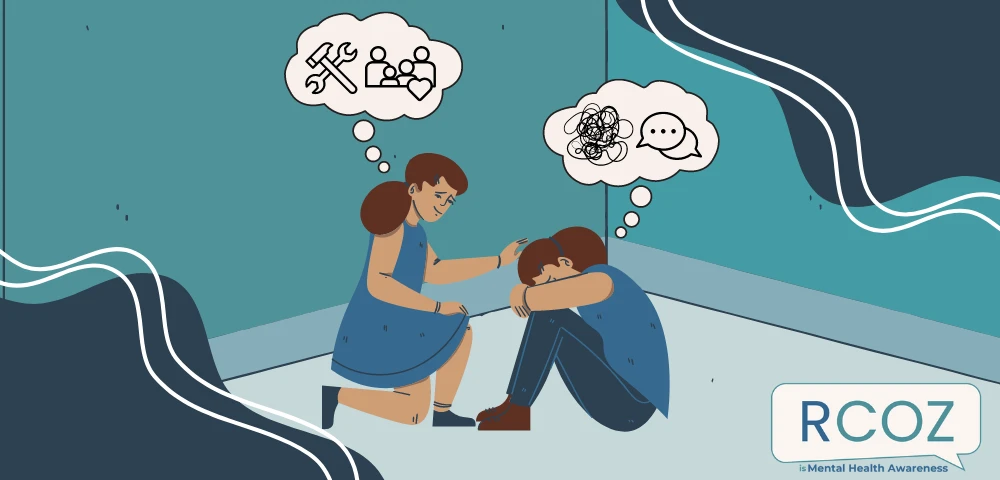Child:
“I just feel down all the time.”
Parent:
“Feel down? What’s there to feel down about? You have a good life. We’ve sacrificed so much to give you everything—what do you have to be sad about?”
Child:
“It’s not about material things. I just feel like I’m not good enough, like I’m failing at everything.”
Parent:
“Failing? That’s nonsense. You got good grades last semester, didn’t you? You just need to stay focused. There’s no time for these feelings—you have to think about your future.”
Child:
“I’m trying, but it’s hard. I’m stressed all the time. It’s affecting everything. I think I need to talk to someone.”
Parent:
“Talk to someone? We don’t discuss our problems with strangers. Family handles these things internally. Just tell me what’s wrong, and I’ll fix it.”
Child:
“You don’t understand. It’s not something you can just fix.”
Parent:
“Of course I can! You think I haven’t been through stress? We didn’t have this ‘mental health’ stuff in my day, and we turned out fine.”
Does this sound familiar?
This exchange mirrors the challenges many South Asian children face when discussing mental health with “fixer” parents—those who believe every problem can be solved with hard work and discipline. In South Asian cultures, emotional distress and mental health struggles are often dismissed or misunderstood, with parents prioritizing tangible solutions over emotional support.
“I’ve been suffering from depression this past year and finally got the courage to talk to my parents about it only to be told that it’s not a real illness.” – Anonymous
While the instinct to help comes from a place of love, the need to fix everything can actually hurt your child. When parents view therapy as unnecessary—thinking it’s only for “insane people” or a “waste of money”—they inadvertently dismiss their child’s real struggles. Instead of validating their emotions, they often suggest that these feelings are simply due to overthinking or weakness.
According to the South Asian Public Health Association (SAPHA), 1 in 5 South Asians in the US report experiencing a mood or anxiety disorder in their lifetime.
When a Child Needs to be Heard but Gets a Fixer Parent Instead
In reality, children often don’t want immediate solutions; they want to be heard. They need their feelings acknowledged and validated. Mental health issues can’t always be fixed by focusing harder or ignoring them. South Asian parents frequently shy away from therapy, seeing it as something for only extreme cases, but this mindset ignores the crucial role of mental health support in preventing long-term emotional distress.
Parents must pause and ask themselves:
Are we truly listening to our child? What is really going on here?
In many cases, seeking professional help is not a sign of weakness but a step toward healing. Addressing these issues can make a significant difference in a child’s emotional well-being.
“There are some experiences in life – and in parenting – that simply have to be felt, not fixed, however hard that is to go through or to watch.” – Suzanne, Founder of Parenting Mental Health
It’s time to stop dismissing mental health struggles and start offering genuine support. Talking about mental health and encouraging open conversations is key to helping children thrive emotionally. Parents must shift from being fixers to becoming empathetic listeners who validate their children’s experiences and make space for mental health awareness.
By doing this, we can break the stigma, normalize therapy, and ensure our children feel supported through their emotional struggles, rather than feeling pressured to simply push through on their own.

